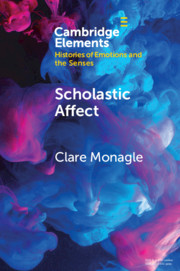Element contents
Scholastic Affect
Published online by Cambridge University Press: 13 July 2020
Summary
- Type
- Element
- Information
- Online ISBN: 9781108886406Publisher: Cambridge University PressPrint publication: 06 August 2020
References
- 13
- Cited by

